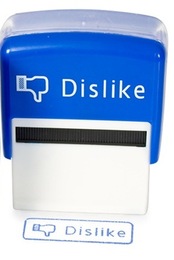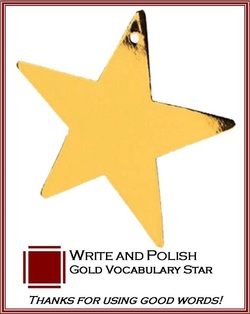 A blog post by Stan Carey, scientist/writer/editor/"swivel-chair linguist"* began to do the rounds today. "The problem with banning words" reflects on the propensity of pedants and snarks to plant the flag of their preferences on the language at large. It's a good article, and certainly worthy of the time of those of you interested in writing, language, and how and why we communicate (contextual motivation having a lot to do with the words and constructions we choose). Still, at the risk of being curmudgeonly ourselves, we, too, have nominated the odd word or phrase for banishment -- most recently, "reach out" when one means contact/speak to/communicate with. On the one hand, we recognize that language is ever-evolving in ways that are organic and, really, quite wonderful. There are, however, some evolutionary false-starts, dead-ends and downright bad seeds that will inevitably crop up along the way. Railing against some of these -- especially by those of us who care enough to get upset about them -- is also natural and, we think, quite appropriate. That said, use of the word "awesome," (which, incidentally, was the catalyst for Mr. Carey's post) makes us smile, tag the statement #NPH and #Legendary, and move along with our day! Even the overused has its little niche. * "swivel-chair linguist" -- great phrase, that!
1 Comment
4/23/2012 1 Comment Observing #TalkLikeShakespeare Day We recalled this morning, upon perusing our Twitter feed, that today is the day we remember William Shakespeare's influence on our language -- Shakespeare having been born, and died, on or about April 23rd. ==================================== Manual of Style @ChicagoManual 'Tis #TalkLikeShakespeare Day! Partake in the celebration with Gary Logan's The Eloquent Shakespeare: http://bit.ly/J4Qijz ==================================== So, for your enjoyment and edification:
Thou talkest (modern: you talk) You talk He/She/It talketh (modern: he/she/it talks) They talk Note how few changes have been wrought in our pronouns and verb forms by four hundred years' evolution!
 We see this all the time -- continuing to accumulate birthdays to those who have passed on. Though our fortieth President, Ronald Reagan, ceased to be in 2004, his "100th birthday" was observed last year. Werner von Braun expired in 1977, but still, last month, his "100th birthday" was noted. As predicted by Bill Murray's character in Stripes, Tito Puente is now dead. And though you may HAVE been listening to him for years, and he WAS (and through his recordings, still is) fabulous, he joined the choir -- er, in this case, the Latin jazz band -- invisible in 2000. Still, we encountered a reference to his birthday today. Only the living continue to age, as reflected by the increasing number of birthdays they have had. A far more correct and appropriate phraseology is, "in memory of Great-Aunt Eliza on the 100th anniversary of her birth...." Or, you may feel free to "reflect on the accomplishments of the late Ezekiel Helmsworth-Cummings on the 85th anniversary of his birth." Bonus: we dedicate things to the living using the phrase, "in honor of" and to the deceased with, "in memory of." Supplemental Bonus: enjoy the Monty Python "Dead Parrot" sketch here.  Daniels Chiropractic Office recently engaged Write and Polish to undertake a complete edit/revision of its website content. Dr. John Daniels, one of the members of the practice's third generation of practitioners, built the website using tools provided by a company that specializes in sites for chiropractors. It looked great, but the text was held over from a previous iteration of the site, and needed both updating and to be tightened up. Conveying a lot of information with a degree of economy is always a challenge; we think this one turned out quite nicely. If you are in the Racine area, we can also recommend the care delivered by Daniels Chiropractic. We're not just their writers...we're their patients as well! Check for yourself at NonProfitList.org. If you're not there, see about submitting! Not only does the listing give the opportunity to tell anyone who looks at this list about your organization, the link to your website will serve as one more opportunity to drive it upwards in search results! That's win-win!
4/17/2012 0 Comments On-Going Project: PWC Services We are happy to be doing some consulting for PWC Services about overall messaging for the company's water treatment/filtration products, coffee and beverage services and concrete/asphalt repair. Dave Meissner, the firm's principal, has more than 20 years' experience in these diverse fields, working all over the upper Midwest. PWC serves the Milwaukee metro area, covering all of southeastern Wisconsin, as well as northern Illinois. If you are located within the region, contact PWC to have your water tested (the test and discussion of results is always free).  Whilst reading Slate.com over lunch today, as we frequently do, we encountered this Gold-Star-worthy gem from author Tom Vanderbilt: "an America enraptured by the cultural prosthesis that is the automobile...." That, ladies and gentlemen, is a fine phrase -- embedded in a fine article about a pedestrian crisis...that is, the fact that Americans just don't walk. Enjoy the full article here.  We have encountered postal abbreviations for state names in narrative text quite frequently, of late. So, it seems time for a reminder that while there are a couple of legitimate options when referring in writing to one or more of the constituent parts of these United States of America, the USPS abbreviations are not among them. It's understandable how people can get into the habit of thinking of the state in which they live, and probably also the neighboring ones, to which they are prone to regularly address postal mail, in terms of the postal abbreviations. Though the addressing of mail using the postal abbreviations is ubiquitous, it is still a rare person who knows all fifty of them. When familiarity is not universal, use in text can leave a significant part of the audience wondering if AL refers to Alaska or Alabama. So, it is generally only correct to use a postal abbreviation as part of an actual address block (on an envelope, at the top of a letter, conveying a third-party's address in the body of a letter, anywhere when street/city/ZIP code are present, etc.) Our advice, for the sake of simplicity, is that within text or anything resembling traditional sentence structure, you should write out the name of the state. If you're just looking for a basic instruction, you can probably stop reading now and go about your day. ---------------------------------------------- ~ On the other hand, if you're interested in some of the qualifiers and digressions, continue: In the matter of postal abbreviations, different style manuals handle these things differently. The Chicago Manual of Style (CMOS) prescribes the advice that Write and Polish dispenses above. It is a clean and straightforward solution with nothing to look up or memorize. However, The Associated Press Stylebook (AP) has a set of abbreviations (and non-abbreviations) that it adopts for each state -- the so-called "traditional" abbreviations that pre-dated the postal system's two-letter designations. The majority of newspapers follow AP style, and these handles do clearly convey the necessary information. However, the traditional abbreviations follow no simple rule, like "three letters, first capitalized, ending with a period." They're each their own thing, including the eight that are never abbreviated! So, for the average person writing everyday business or personal material, to follow AP, you would need to refer to a list each time unless you'd learned them. Now, Write and Polish, being concerned about the aesthetic appearance of information on the printed (or rendered) page, writes the state name in its entirety in text AND IN ADDRESS BLOCKS. Though the postal system (their optical readers, actually) wants universal use of its two-letter codes, at present, our preference for what we find to be a more elegant look does not interfere with delivery. We will also admit, when dealing with our own materials, to a streak of obstinacy in the face of government-instituted homogenization! This W&P choice illustrates what is known as "house style." How material is presented can support, detract, or be neutral with reference to the brand and the organization's culture. A business or institution will often choose a major style manual to act as a "base" for its written material, and then supplement it with brand-specific requirements and other exceptions that constitute its own, hopefully distinct, style. House style should still be consistent with understanding, but allows for leeway in a variety of areas. For example, as of this writing, explicit direction to include or exclude the comma before the terminal conjunction in a simple series has become a "house" style point, as in: We color-coded our edits in red, blue, and green. or We color-coded our edits in red, blue and green. The first presentation was once de rigueur, but has largely gone by the wayside as unnecessary and redundant. For those who feel strongly about retaining that comma, however, spelling out the expectation in an internal style manual ensures that it is done consistently throughout the organization. |
Write and Polish BloggersChristie Manussier, principal Writer and Polisher, is the usual news reporter. CategoriesAll Abbreviation Academic Acronym Adjective Adverb Anachronism Anagram Apostrophe Application Article Banished Biography Blend B.N.I. Boldface Brochure Bunnies Business Business Plan Capitalization Children's Literature Christmas Church Comma Common Mistakes Construction Contact Management Content Contest Cross-sell Databse Differentiators Donation Double Negative E-mail Entertainment Etymology Event Coordination File Format First Reference Flyer Fundraiser Giggles Gold Star Grammar Day Grant Proposal Haiku Health Care Homophones Hyphen Idiom Images Italics Law Firm Magazine Manual Marketing Maternity Leave Metaphor Myth News & Announcements Newsletter Non Profit Non-profit Noun Numbers Of Snakes And Presidents Parts Of Speech P.D.F. Plural Poetry Portmanteau Poster Powerpoint P.R. Preposition Press Release Projects Pronoun Proofreading & Editing Punctuation Quotation Marks Quotes Real Estate Recommended Reading Reflexive Research Resources Restaurant Retail R.F.P. R.I.P. Shakespeare Slideshow Social Media Spelling Style Manual Synonyms Syntax Template Tenses Testimonial Thesaurus Training Manual Translation Travel Twitter Underlining Verb Video Vocabulary Website Why The World Needs More Proofreaders Winter Word Of The Day Writers Writing Tip Archives
March 2015
|
Search by typing & pressing enter

 RSS Feed
RSS Feed